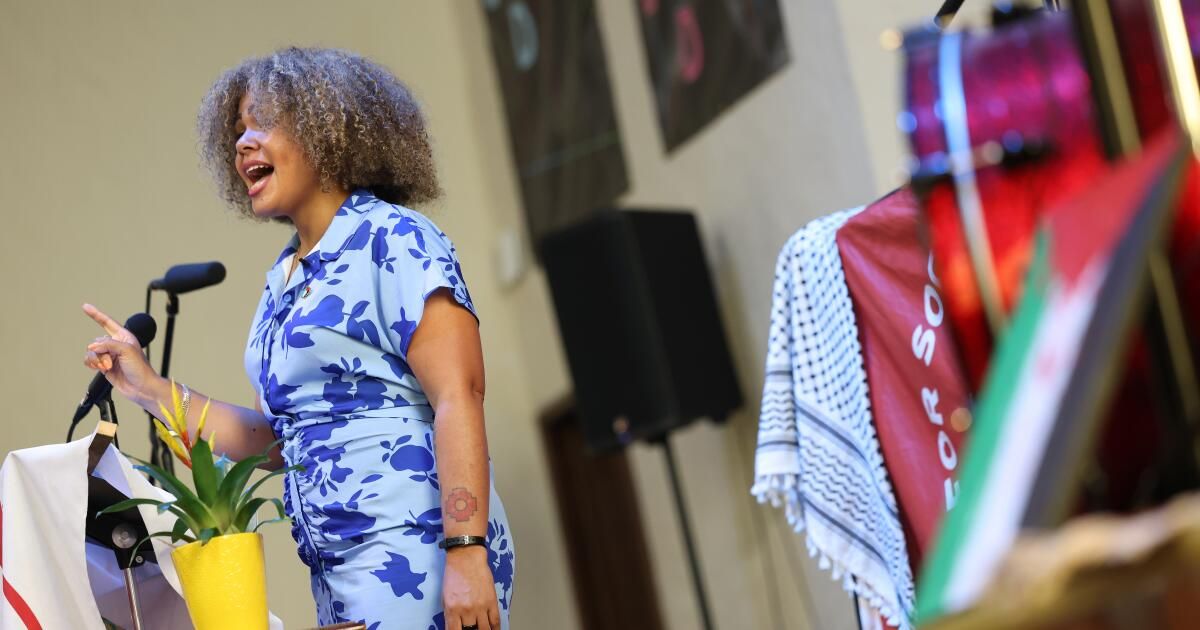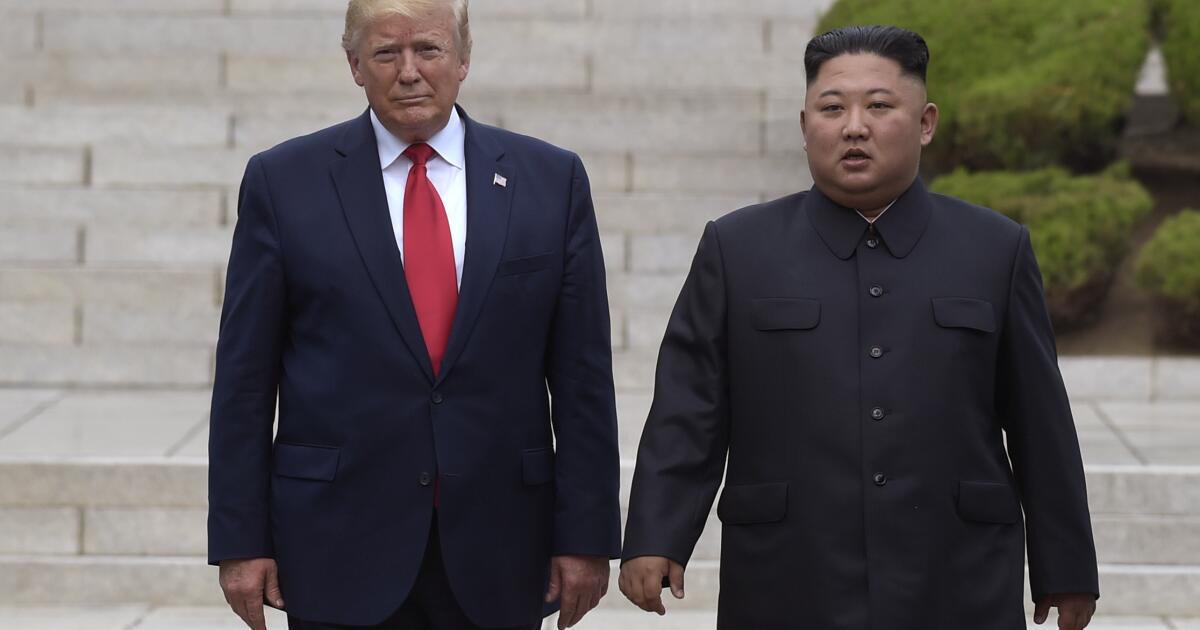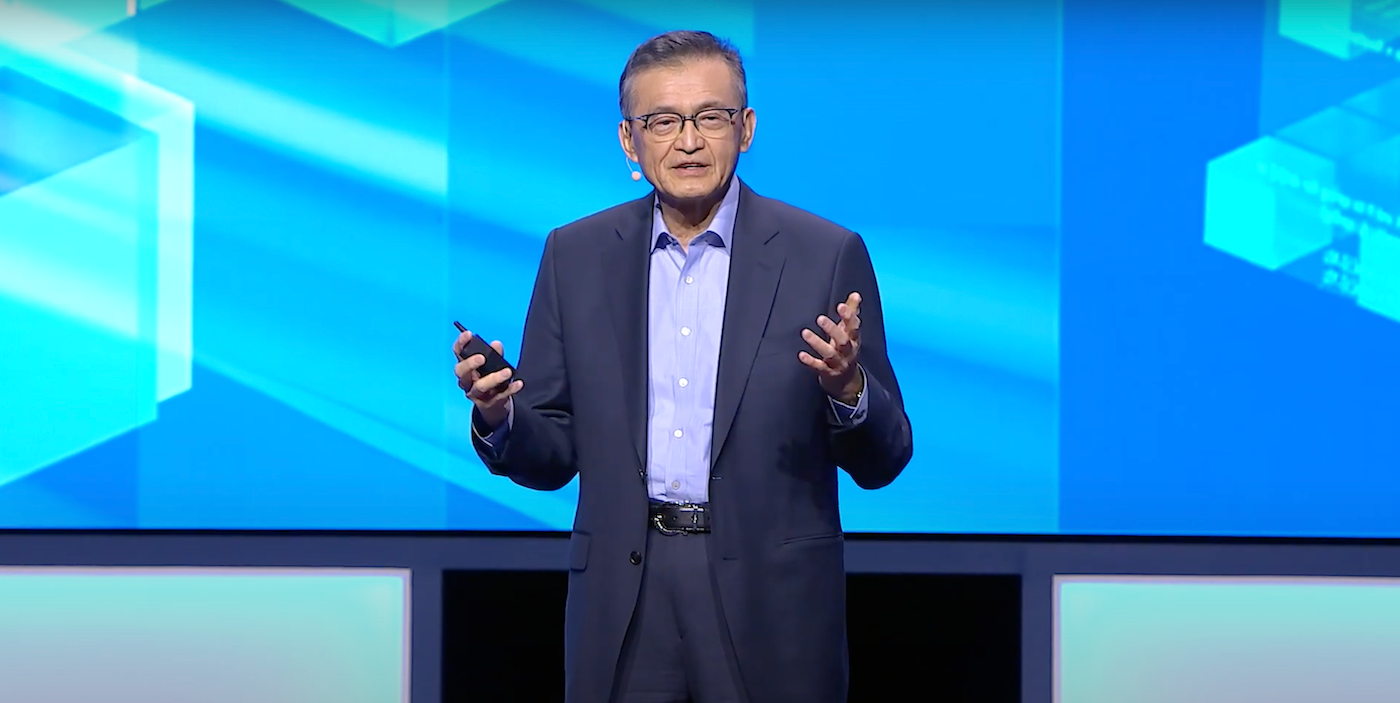I am a progressive Californian, a black man, and this year I did not vote for Democratic presidential contender Kamala Harris or Donald Trump. I voted for Claudia De La Cruz, the presidential candidate of the Peace and Freedom Party.
The decision was easy. With two exceptions over the past four decades of presidential elections, I have always voted for a progressive third-party presidential candidate. (The two exceptions? Hillary Clinton in 2016 because I liked the idea of breaking the glass ceiling. And Walter Mondale in 1984 because of my dislike of Ronald Reagan.)
I reject the feeling of guilt that a third-party vote is a disposable vote or, worse yet, one that opens the door to great, bad ghost candidates. And I don't make my decisions thinking it doesn't matter because in my blue state a Democrat will win anyway. I mark my ballot the way I do because it reflects my conscience and my deepest political beliefs.
I admit that I didn't tell most of my friends and family about my plan this year. They would have ripped me from pillar to post and verbally assaulted me: “It's a wasted vote.” “It will hurt the cause.” “It's downright silly to vote for someone almost no one has heard of in a party that hasn't been relevant since the Vietnam War.” My family and associates were passionate supporters of Harris. His enthusiasm was understandable. My vote would have been seen as ruining the historic chances of a black woman with East Indian roots sitting in the Oval Office. I understood it and I had no illusions that I could change their minds.
In any case, for me the problem was not Harris, her political positions or her campaign. (I won't get involved in the avalanche of second, third and fourth guesses about what sank her.) The issue was and is the two-party system itself.
Republican and Democratic politics are an iron chain that binds the American electorate. Voting for De La Cruz was my way of giving that chain a hammer blow. I value independence, the right to exercise freedom of choice, and I believe that having more options is true to the spirit of democracy.
This is not wishful thinking. Many countries have a pluralistic representative system with multiple political parties. Its citizens have a real option to vote for their beliefs and interests. The parties they can vote for are not on the sidelines. They win positions. They occupy seats in parliaments and assemblies. They often form coalitions with other parties to gain a more powerful seat at the table. Multiparty giving more people a distinct voice in how their government works.
But embedded in American politics is the notion that there can only be two parties and that the winner takes all. The Constitution does not require it, and every four years I hear people wishing for other options, other parties that could have the opportunity to make an impact.
With the guarantee that a Republican or Democrat will take power, special interests place their bets. This year, both campaigns had real bailout war chests flowing with donations from ordinary people, but mainly from large corporations, industrial and business groups, major labor unions and a parade of millionaires and billionaires.
The two-party system also ensured that only Republican and Democratic agendas gained media exposure, significant support, and sustained public attention. Other approaches to our challenges, our security, or our role in the world simply didn't stand a chance.
Let me be clear again. My vote for De La Cruz was not a deliberate snub toward Harris, and I have no regrets. I simply believe that for our democracy to be a democracy, people must have choices, and those choices should not be exclusively marked with a Republican or Democratic label.
Earl Ofari Hutchinson's latest book is “The America of 'President' Trump.” His comments can be found at thehutchinsonreport.net.










